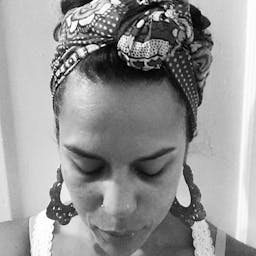A Letter to the NYPD, For the Love Of Our Families
Jan 21, 2015
Story
As a new mother who spends of most of her evenings quietly at home, with her husband and toddler son, I am particularly grateful to the New York Civil Liberties Union for their most recent lawsuit against the NYPD, filed January 20th in the NY State Supreme Court. Aimed at curtailing the “stop-and-frisk” policing policies which seem to have migrated from our street corners into our homes, the lawsuit targets the NYPD’s “stop-and-frisk” program in private buildings. Most New Yorkers don’t even know that stop-and-frisk practices can literally await you on your doorstep. I didn’t know until my husband was stopped- and frisked- on his way back from throwing away the garbage one evening after dinner. In a just or moral society, a young father in sweatpants and slippers wouldn’t appear threatening or suspect as he enters his apartment building, keys in hand. In the case of my husband, a mundane domestic chore turned into a stop-and-frisk-interrogation in the hallway of the apartment building where we pay rent to live in peace. I waited anxiously for over an hour and a half.
When he finally made it home, he called 311 and the Citizen Complaint Review Board. We haven’t heard back. It may be because he was so livid from the experience that he hung up after fifty full minutes on hold. Police complaints aren’t top priority for 311. And for us, they are nothing new. This complaint wouldn’t be much different from the one he should have filed last summer when three Latino cops followed him down the block, plotting his arrest in Spanish, all the while assuming that he was African-American. Well, he is Black, but he happens to be Latino and speak fluent Spanish. Only his recognition of one of the officers, whom he actually knew from childhood, saved him an arrest.
Unfortunately, most Black and Brown men and boys in New York City don’t get saved from those arrests. According to the New York Civil Liberties Union, Blacks and Latinos made up 85% of the NYPD’s “stop-and-frisk” arrests in 2011. According to the Village Voice, most of that 85% were males ages 15 to 24. My husband is 33, so I guess that he and a smaller number of women of color and elder men of color account for the remainder of that 85%.
This type of systemic abuse of boys and men of color is an assault on our entire community. This form of institutionally-sanctioned violence and cruelty is a relic of enslavement in the United States, built into our justice system, which seeks to emasculate our men, terrorize our women, and ultimately, destroy our families. While only 9% of those stop-and-frisk episodes yield arrest, the impact on communities of color is lasting. Our men and women continue to be fed into the prison industrial complex. Our children continue to be fodder for the school to prison pipeline, as educational inequity permeates every cell of a public education which has nearly obliterated academic success for students of color. Our families continue to live with the undue burden of fear, anxiety, and dislocation in our very own homes.
As a daughter, sister, mother, and wife, I know how painful it is to watch the men in my family brutalized needlessly. All of the men in my family, with the exception of my youngest brother and toddler son, have experienced some form of brutalization by the police. Fortunately, they are all alive. Unfortunately, the NYPD’s excessive use of force and insistence on terrorizing the communities of color persists. Born and bred in New York, I remember the deaths of Anthony Baez, Anibal Carrasquillo, Yong Xin Huang, Anthony Rosario, Hilton Vega, Amadou Diallo, Sean Bell, and most recently, 18 year old, Ramarley Graham. For them, and the two pristine young lives we have managed to salvage in my family, racial profiling and police brutality in this city must end.
This article is part of a writing assignment for Voices of Our Future a program of World Pulse that provides rigorous new media and citizen journalism training for grassroots women leaders. World Pulse lifts and unites the voices of women from some of the most unheard regions of the world.




